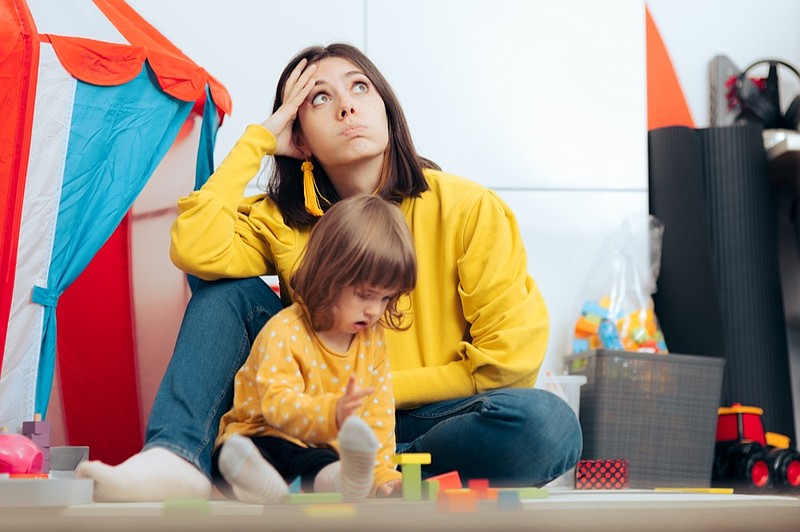Have you ever felt like you can't parent any longer? Like you've given everything you've got, and there's nothing left? These feelings are a reality for many parents. They are simply exhausted. And if they don't address it, exhaustion can lead to burnout.
Psychologist Herbert Freudenberger describes burnout as a severe stress condition. It leads to extreme physical, mental and emotional exhaustion. Burnout goes well beyond stress or fatigue, though. With burnout, navigating day-to-day responsibilities can be a challenge.
Burnout is often discussed in professional circles. But parents are at risk, too. Board-certified neurologist Dr. Puja Aggarwal defines parental burnout as "the physical, mental and emotional exhaustion that one feels from the chronic stress of parenting."
Continual exposure to stressful situations brings on this state of mental and physical exhaustion. For some parents, burnout is all too real.
All parents are at risk, though. Parenting is tough. And parenting can be stressful, especially during the early stages of child development. But what do we do?
Being aware that burnout is real and being mindful of the signs can help you get the help you need.
In recent years, professors Isabelle Roskam and Moïra Mikolajczak have extensively researched parental burnout. After surveying more than 900 burned-out parents, they developed a Parental Burnout Assessment (and anyone can use it). They've also studied more than 17,000 parents in 45 countries to learn more about what causes burnout.
"Burnout is the result of too much stress and the absence of resources to cope with it," Roskam said. "You will burn out only if there is an imbalance between stress and resources."
Here are five signs of burnout according to the Parental Burnout Assessment:
1. Constant exhaustion
Parenting is tiring; we can all agree on that. But feeling tired or drained all the time is a whole other level. Studies show that parents may experience different types of exhaustion based on their children's age. Parents of younger kids are often more physically tired. Parents of teens often experience emotional fatigue caused by conflicts with their children.
Frequently, burned-out parents stress over how they will get everything done.
2. Distancing yourself from your child(ren)
Burned-out parents may do this to preserve energy. Have you ever heard a parent say, "I love my children, but I can't stand being around them anymore"?
3. Loss of fulfillment
Parents often find they are not the parents they used to be or would like to be. They see a difference in who they are. This can lead to extreme guilt and stress.
4. Suicidal thoughts or ideas of escape
With job-related burnout, you can find another job. But leaving is not an option for burned-out parents. Some parents reported feeling trapped and had thoughts of escape or even suicide. These thoughts were more common among parents than in those experiencing job burnout.
5. Being violent or neglectful toward your child(ren)
Even if a parent opposes being violent or neglectful toward their child, burnout can cause them to be.
Psychologists have also identified other signs of burnout. They include:
- Feelings of helplessness, hopelessness or self-doubt.
- Headaches, neck pain and muscle aches.
- Loss of motivation.
- Changes in appetite or sleeping habits.
- Feeling isolated or alone.
It's essential to know and recognize the signs of parental burnout. Any parent is susceptible to burnout if there's an imbalance between the stress and their resources. Burnout is preventable, and help is available, too.
If you or someone you know is struggling with suicidal thoughts, there are a number of websites and organizations with excellent resources for you. HelpGuide is a great place to start, along with the American Foundation for Suicide Prevention at 1-800-273-TALK (8255).
For more resources, or to report abuse, contact the National Child Abuse Hotline at 1-800-4-A-CHILD (1-800-422-4453).
You can take steps today to stop the cycle of burnout. You can surround yourself with a community and take care of yourself. You can also give yourself grace, take a break when needed and set boundaries. For more information, contact the hotline numbers below or visit firstthings.org.
Mitchell Qualls is vice president of operations at family advocacy nonprofit First Things First. Email him at mitchell@firstthings.org.

